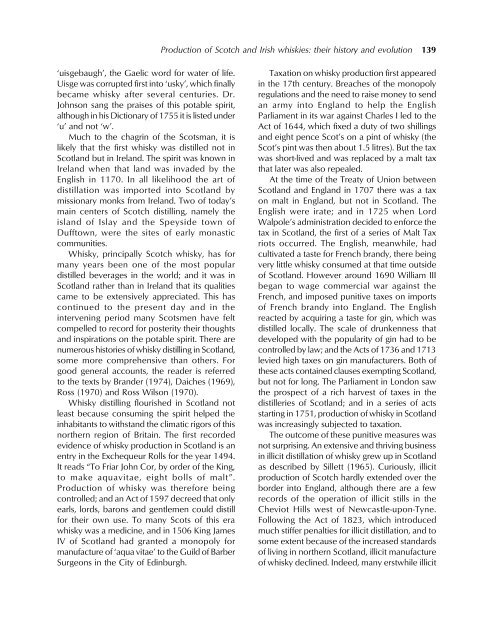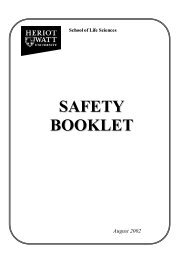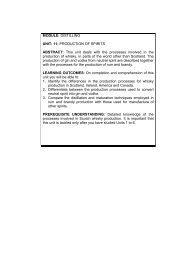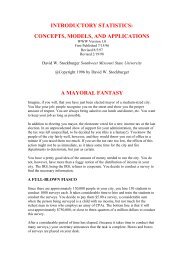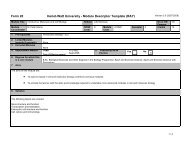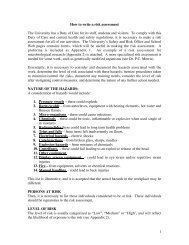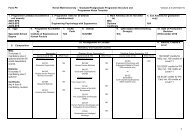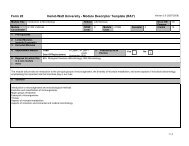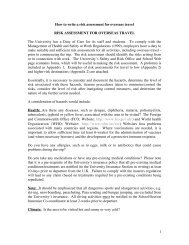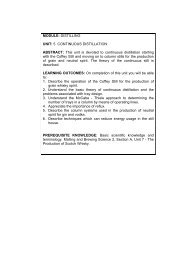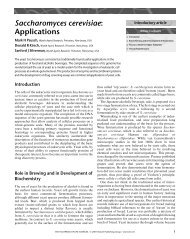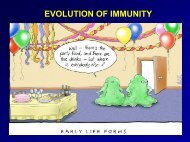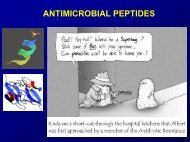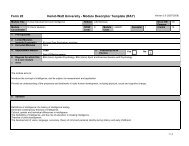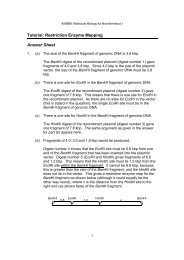Chapter 11 Production of Scotch and Irish whiskies: their history and ...
Chapter 11 Production of Scotch and Irish whiskies: their history and ...
Chapter 11 Production of Scotch and Irish whiskies: their history and ...
You also want an ePaper? Increase the reach of your titles
YUMPU automatically turns print PDFs into web optimized ePapers that Google loves.
<strong>Production</strong> <strong>of</strong> <strong>Scotch</strong> <strong>and</strong> <strong>Irish</strong> <strong>whiskies</strong>: <strong>their</strong> <strong>history</strong> <strong>and</strong> evolution 139‘uisgebaugh’, the Gaelic word for water <strong>of</strong> life.Uisge was corrupted first into ‘usky’, which finallybecame whisky after several centuries. Dr.Johnson sang the praises <strong>of</strong> this potable spirit,although in his Dictionary <strong>of</strong> 1755 it is listed under‘u’ <strong>and</strong> not ‘w’.Much to the chagrin <strong>of</strong> the Scotsman, it islikely that the first whisky was distilled not inScotl<strong>and</strong> but in Irel<strong>and</strong>. The spirit was known inIrel<strong>and</strong> when that l<strong>and</strong> was invaded by theEnglish in <strong>11</strong>70. In all likelihood the art <strong>of</strong>distillation was imported into Scotl<strong>and</strong> bymissionary monks from Irel<strong>and</strong>. Two <strong>of</strong> today’smain centers <strong>of</strong> <strong>Scotch</strong> distilling, namely theisl<strong>and</strong> <strong>of</strong> Islay <strong>and</strong> the Speyside town <strong>of</strong>Dufftown, were the sites <strong>of</strong> early monasticcommunities.Whisky, principally <strong>Scotch</strong> whisky, has formany years been one <strong>of</strong> the most populardistilled beverages in the world; <strong>and</strong> it was inScotl<strong>and</strong> rather than in Irel<strong>and</strong> that its qualitiescame to be extensively appreciated. This hascontinued to the present day <strong>and</strong> in theintervening period many Scotsmen have feltcompelled to record for posterity <strong>their</strong> thoughts<strong>and</strong> inspirations on the potable spirit. There arenumerous histories <strong>of</strong> whisky distilling in Scotl<strong>and</strong>,some more comprehensive than others. Forgood general accounts, the reader is referredto the texts by Br<strong>and</strong>er (1974), Daiches (1969),Ross (1970) <strong>and</strong> Ross Wilson (1970).Whisky distilling flourished in Scotl<strong>and</strong> notleast because consuming the spirit helped theinhabitants to withst<strong>and</strong> the climatic rigors <strong>of</strong> thisnorthern region <strong>of</strong> Britain. The first recordedevidence <strong>of</strong> whisky production in Scotl<strong>and</strong> is anentry in the Exchequeur Rolls for the year 1494.It reads “To Friar John Cor, by order <strong>of</strong> the King,to make aquavitae, eight bolls <strong>of</strong> malt”.<strong>Production</strong> <strong>of</strong> whisky was therefore beingcontrolled; <strong>and</strong> an Act <strong>of</strong> 1597 decreed that onlyearls, lords, barons <strong>and</strong> gentlemen could distillfor <strong>their</strong> own use. To many Scots <strong>of</strong> this erawhisky was a medicine, <strong>and</strong> in 1506 King JamesIV <strong>of</strong> Scotl<strong>and</strong> had granted a monopoly formanufacture <strong>of</strong> ‘aqua vitae’ to the Guild <strong>of</strong> BarberSurgeons in the City <strong>of</strong> Edinburgh.Taxation on whisky production first appearedin the 17th century. Breaches <strong>of</strong> the monopolyregulations <strong>and</strong> the need to raise money to sendan army into Engl<strong>and</strong> to help the EnglishParliament in its war against Charles I led to theAct <strong>of</strong> 1644, which fixed a duty <strong>of</strong> two shillings<strong>and</strong> eight pence Scot’s on a pint <strong>of</strong> whisky (theScot’s pint was then about 1.5 litres). But the taxwas short-lived <strong>and</strong> was replaced by a malt taxthat later was also repealed.At the time <strong>of</strong> the Treaty <strong>of</strong> Union betweenScotl<strong>and</strong> <strong>and</strong> Engl<strong>and</strong> in 1707 there was a taxon malt in Engl<strong>and</strong>, but not in Scotl<strong>and</strong>. TheEnglish were irate; <strong>and</strong> in 1725 when LordWalpole’s administration decided to enforce thetax in Scotl<strong>and</strong>, the first <strong>of</strong> a series <strong>of</strong> Malt Taxriots occurred. The English, meanwhile, hadcultivated a taste for French br<strong>and</strong>y, there beingvery little whisky consumed at that time outside<strong>of</strong> Scotl<strong>and</strong>. However around 1690 William IIIbegan to wage commercial war against theFrench, <strong>and</strong> imposed punitive taxes on imports<strong>of</strong> French br<strong>and</strong>y into Engl<strong>and</strong>. The Englishreacted by acquiring a taste for gin, which wasdistilled locally. The scale <strong>of</strong> drunkenness thatdeveloped with the popularity <strong>of</strong> gin had to becontrolled by law; <strong>and</strong> the Acts <strong>of</strong> 1736 <strong>and</strong> 1713levied high taxes on gin manufacturers. Both <strong>of</strong>these acts contained clauses exempting Scotl<strong>and</strong>,but not for long. The Parliament in London sawthe prospect <strong>of</strong> a rich harvest <strong>of</strong> taxes in thedistilleries <strong>of</strong> Scotl<strong>and</strong>; <strong>and</strong> in a series <strong>of</strong> actsstarting in 1751, production <strong>of</strong> whisky in Scotl<strong>and</strong>was increasingly subjected to taxation.The outcome <strong>of</strong> these punitive measures wasnot surprising. An extensive <strong>and</strong> thriving businessin illicit distillation <strong>of</strong> whisky grew up in Scotl<strong>and</strong>as described by Sillett (1965). Curiously, illicitproduction <strong>of</strong> <strong>Scotch</strong> hardly extended over theborder into Engl<strong>and</strong>, although there are a fewrecords <strong>of</strong> the operation <strong>of</strong> illicit stills in theCheviot Hills west <strong>of</strong> Newcastle-upon-Tyne.Following the Act <strong>of</strong> 1823, which introducedmuch stiffer penalties for illicit distillation, <strong>and</strong> tosome extent because <strong>of</strong> the increased st<strong>and</strong>ards<strong>of</strong> living in northern Scotl<strong>and</strong>, illicit manufacture<strong>of</strong> whisky declined. Indeed, many erstwhile illicit


